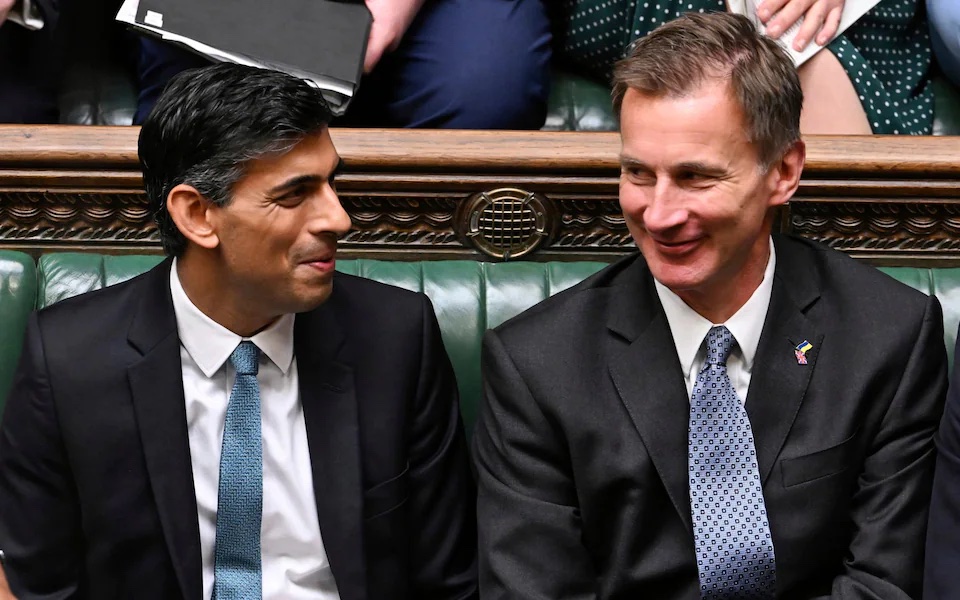We must acknowledge that many believe the economy is not working for them
The Government must demonstrate to the British people that it sees their financial struggles and will not exacerbate them.
Kit Malthouse
29th October 2022
The last month has been economically traumatic, but a resumption of the status quo ante, while welcome for many, brings with it some profound questions about how we got here, where we go next, how to get there and the nature of our economy.
While the so-called mini budget poured fuel on the fire, in truth the ingredients were already assembled for a toxic economic cocktail. Many seem to have forgotten that back at the beginning of August the Bank of England forecast a 15-month recession, in a drastic downgrade of its previously milder pessimism in May.
Of course, markets are as much a metric of emotion as they are a mathematical exercise. The sudden darkness in the sky above Threadneedle Street made many in the City jittery – how could the Bank have been so far off the mark so recently? Those of us of a monetarist persuasion were not surprised. In recent years, central banks have paid scant attention to the money supply, domestically and internationally. For differing reasons, everyone is braced for the Bank’s November forecast.
To right the ship, the Chancellor and Prime Minister now have some tough choices to make. They have hinted several times that taxes will have to rise, and spending will have to fall. In contemplating this dreadful double-whammy, there are some broad principles they must have at hand. These will be tested by parliament and most notably through the Treasury Committee, for which I am standing for election as chair.
The first is that not all government spending is equal. The PM and Chancellor should decide what is icing and what is cake, and then spend and save accordingly.
Until last week I was Secretary of State for Education, trying to support a sector struggling with rising costs. Headteachers across the land are gritting their teeth and sharpening their pencils to make next year’s budget work. So imagine my surprise when I read that a Transport Minister had boasted at the despatch box that the government plans to spend £9.9 billion on “cycling and walking objectives”.
A government must have priorities, and its spending – and any consequent savings – must reflect them. Instead, the Treasury has historically conducted difficult spending reviews on a departmental basis, salami slicing in order to spread the pain widely. As a result, Secretaries of State compete to defend their budgets. This de facto divide and rule means policy objectives are easily lost and everything becomes a priority, which means nothing is.
Furthermore, children and their education were indisputably among the worst affected by the pandemic. Surely it would be indefensible not to prioritise them now, even at the expense of “walking objectives”. And surely an educated workforce is an essential element of a productive economy.
The second principle is that all tax has an impact on the economy, either directly or by changing behaviour, and almost all of it eventually impacts on the consumer.
Companies, for instance, don’t actually pay tax. They just price it in as an overhead, so consumers pay tax for them when we buy their goods or services. Their national insurance, corporation tax and even their employees’ income tax is priced into everything you buy, with VAT on top. That first nibble of a Kit-Kat is actually a mouthful of tax.
In his Mais Lecture in February, the then Chancellor, Rishi Sunak, now Prime Minister, described a “great slowing down” across the western world, that began even before the Covid pause. “Productivity, living standards, and dynamism are not growing fast enough.”
At a time when so many families and businesses are struggling, how will higher taxes help us overcome this “great slowing down”? A dynamic economy is one where capital seeks out ideas and takes risks to create wealth. How does tax policy help create this economy?
Finally, we must acknowledge that many people believe the economy is still not working for them. Too many of our fellow citizens feel excluded from our national balance sheet. Yes they have income, and employment levels are high, but recent estimates show that more than a quarter of Brits have less that £500 in savings, and around 10 million people have less than £100. Home ownership is declining and – among the young – falling fast. Ordinary people hold less and less of the stock exchange and few own shares in the company they work for. We have become a capitalist country where fewer and fewer people have any capital. This is an existential crisis for capitalism as a system.
The next few months are going to be tough, and I don’t envy the Chancellor as he wrestles with our public finances. But he will have struck the right balance if he can demonstrate to the British people that the government sees their financial struggles and will not exacerbate them, that he and the Prime Minister share their priorities and will invest in them, and critically, that we believe in a property-owning democracy where everyone has the chance to call themselves an owner.
Kit Malthouse is the Conservative MP for North West Hampshire

